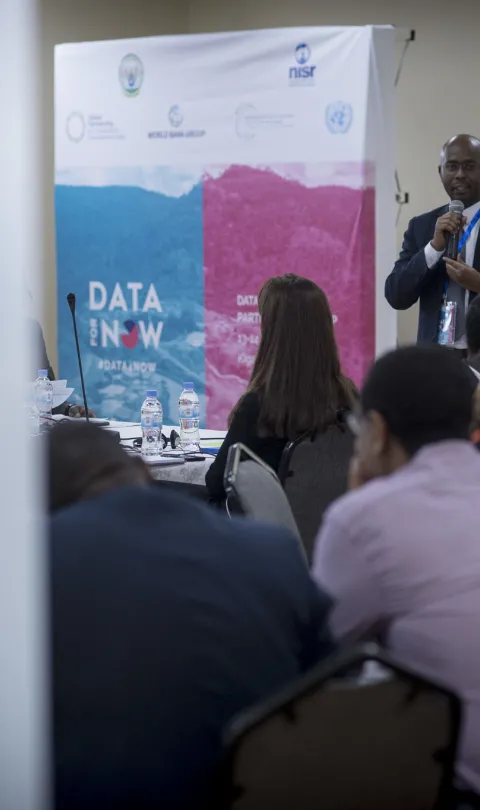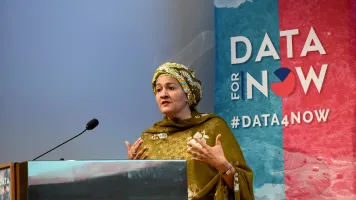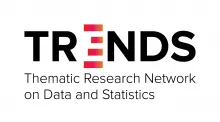The beginning of any major initiative is exciting and uncertain, and Data for Now is no exception.
The exciting part? Data for Now aims to accelerate the production and use of timely data for sustainable development, starting in eight pioneering partner countries: Bangladesh, Colombia, Ghana, Mongolia, Nepal, Paraguay, Rwanda, and Senegal. We want timely data to become the norm, and we know that tested, scalable solutions exist in all corners of the world.
But data doesn’t fall into our laps – and this is where things become uncertain. We have to look for it, and at it, to extract the stories that it tells. And then we have to put that to use, through strategic and lasting partnerships, to make the decisions that can change the story.
Where do we start?
That’s why we all came together at the National Institute of Statistics Rwanda in Kigali for the recent Data for Now kick-off workshop, which brought together the initial set of eight country partners, as well as nearly 50 others representing data providers, regulators, industry associations, experts, analysts, multilaterals, donors, and more.
Meeting in person helped us to really drill down on the issues that will have the most impact for governments and citizens, matching them with solutions and creating partnership roadmaps in real time.
What happened?
We discussed our expectations at the start of the workshop, and some key themes emerged: the importance of joining up national, regional and international efforts; the need to change status quo thinking and actions in government departments; the importance of effectively matching solutions to problems and scaling efforts; questions of sustainability and funding; and more…
To address all of these issues, we focused on having clear outcomes and followed a robust Theory of Change approach. If attendees expected two days of easy conversations, lofty ideas, and salsa dancing on a rooftop in the moonlight, they were wrong. Apart from the dancing on a rooftop bit.
Overall, the workshop wildly exceeded my expectations, particularly in regards to the promising opportunities for collaboration that arose by simply bringing together so many well-informed people with an urgent need to get things done.
But there is still so much work to do.
So what’s next?
- Country Roadmaps: Many participants identified necessary preconditions for delivering objectives (for example, access to data, training, etc), and began mapping priority next steps. We’ll use these roadmaps to develop specific interventions for each country and program. For many countries, the first step is establishing a governance body to lead inter-departmental coordination, stakeholder feedback, and political buy-in, and so that is where we will start in developing the right partnerships to deliver on country priorities.
- Understanding what’s out there: Each year, more Earth observation satellites are launched, new data sets are made available from public and private sectors, and new platforms for analysis are developed. There’s a range of temporal coverage, spatial resolution, geographies, costs, bandwidth requirements, training needs, stakeholders, and applications. These form a dizzying array of opportunities for partnerships – and this is just one of the four workshop focus areas. We need to provide guides through the maze by working with experts to analyze what is there and how to use it.
- Defining “timeliness”: We’re all about timely data for the SDGs, but what do we mean by timely? It means different things in different contexts. In some cases annual data is as timely as we need, and in others, daily updates are both possible and useful. There’s a lot to consider here – methodology, data availability, capacity, and the decision-making cycle, among others. We’ll be doing some thinking on that together, informed by country experiences, and using it to inform our decisions.
- Partnership models: Creating sustainable partnerships means developing shared objectives and delivering clarity on what each stakeholder is expected to contribute. We heard many experiences of successful and less successful partnerships at the workshop. And at the Global Partnership, we have experience of over 50 partnerships we have brokered in our first four years. Greater understanding of existing experiences will help identify the best approaches and most successful partnership governance mechanisms, and we will be producing some information and guides to help.
Want to get involved? Get in touch. We’re eager to hear from policymakers, experts, data providers, funders, and everyone in between.


